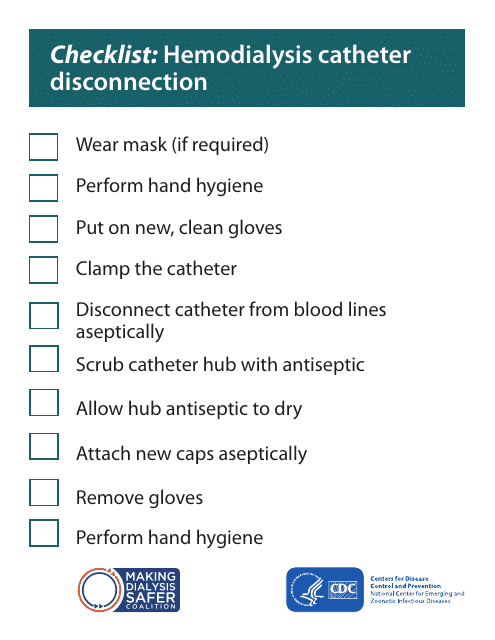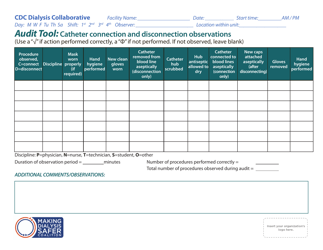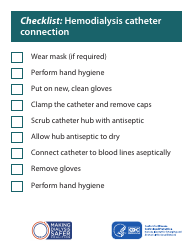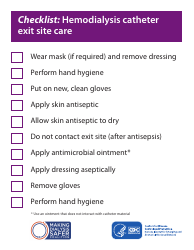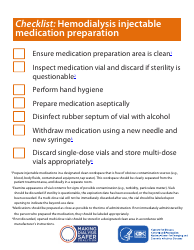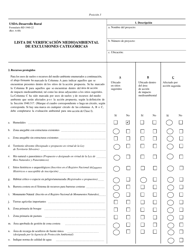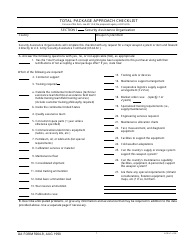Checklist: Hemodialysis Catheter Disconnection
Checklist: Hemodialysis Catheter Disconnection is a 1-page legal document that was released by the U.S. Department of Health and Human Services - Centers for Disease Control and Prevention and used nation-wide.
FAQ
Q: What is a hemodialysis catheter?
A: A hemodialysis catheter is a type of catheter that is used to access the blood vessels to perform hemodialysis.
Q: What is hemodialysis?
A: Hemodialysis is a medical procedure used to remove waste and excess fluid from the blood when the kidneys are no longer able to function properly.
Q: What is a hemodialysis catheter disconnection?
A: Hemodialysis catheter disconnection refers to the separation of the catheter from the tubing or connector used to connect it to the dialysis machine.
Q: Why is hemodialysis catheter disconnection a concern?
A: Hemodialysis catheter disconnection can interrupt the flow of blood during the dialysis treatment, resulting in inadequate dialysis and potential complications.
Q: What are the signs and symptoms of hemodialysis catheter disconnection?
A: Signs and symptoms of hemodialysis catheter disconnection may include blood leakage, loss of dialysis solution, low blood pressure, and a decrease in the amount of fluid removed during dialysis.
Q: What should I do if my hemodialysis catheter becomes disconnected?
A: If your hemodialysis catheter becomes disconnected, you should immediately notify the healthcare staff or your dialysis center for assistance.
Q: How can I prevent hemodialysis catheter disconnection?
A: To prevent hemodialysis catheter disconnection, it is important to follow proper catheter care instructions, avoid tugging or pulling on the catheter, and be cautious when moving or dressing near the catheter site.
Q: Can hemodialysis catheter disconnection be dangerous?
A: Hemodialysis catheter disconnection can be dangerous as it can lead to inadequate dialysis, blood loss, infection, and other complications. Prompt detection and management are important to ensure patient safety.
Q: Who should I contact for help with hemodialysis catheter disconnection?
A: If you experience a hemodialysis catheter disconnection, you should immediately contact the healthcare staff or your dialysis center for assistance and guidance.
Q: What other complications can occur with a hemodialysis catheter?
A: Other complications that can occur with a hemodialysis catheter include infection, clotting, bleeding, and narrowing or blockage of the blood vessels.
Form Details:
- The latest edition currently provided by the U.S. Department of Health and Human Services - Centers for Disease Control and Prevention;
- Ready to use and print;
- Easy to customize;
- Compatible with most PDF-viewing applications;
- Fill out the form in our online filing application.
Download a printable version of the form by clicking the link below or browse more legal forms and templates provided by the issuing department.
